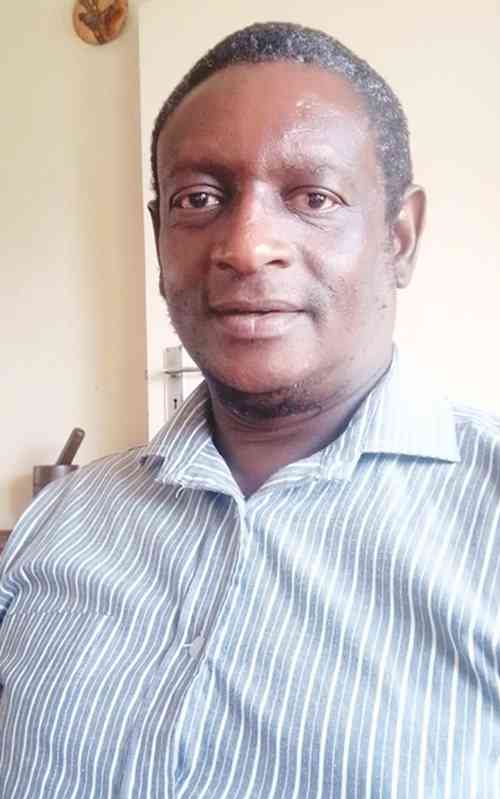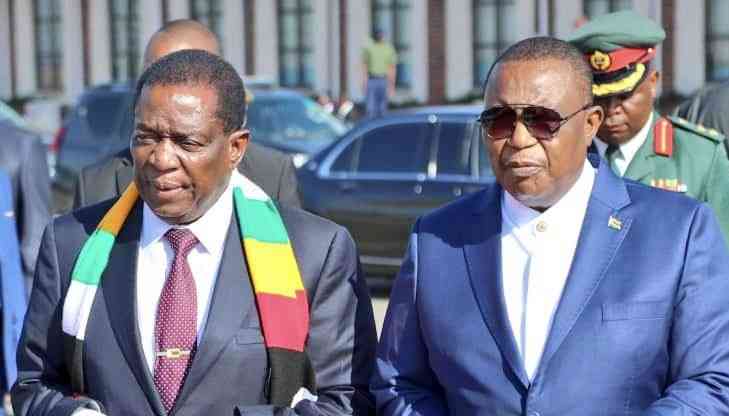
So, another so-called mbinga (wealthy person) in Zimbabwe has been active once again, on social media flaunting his latest acquisitions.
This time around, he bought himself the latest Maybach Benz GLS60O, and a 2023 Rolls Royce Cullina — allegedly costing US$400 000 and US$800 000, respectively.
No sweat — let him spend his money the way he sees fit!
It is his, anyway, right?
However, there are always some questions that need to be asked, particularly when it comes to the lifestyles of these mbingas.
Why the flamboyant spending?
What is this all about and is there something else to all this?
I was going though various vehicles driven by some of the world’s richest people who are clearly worth multiple times more than all our mbingas in Zimbabwe combined and the results were stunning.
- Meta, Qualcomm sign pact on custom virtual reality chips
- Mark Zuckerberg says Meta is making this the ‘year of efficiency’
- Meta Platform's Zuckerberg: Facebook parent to be leaner, more efficient
- Tech layoffs: Yahoo to slash 20% of its workforce
Keep Reading
How many of us knew that Meta Facebook founder and CEO Mark Zuckerberg — with a net worth of US$82,9 billion — drove around in a Honda Fit or an Acura TSX, which he described as safe, comfortable and not ostentatious?
Then, there is Warren Buffet — CEO of Berkshire Hathaway whose worth is US$112,8 billion — but owns a Cadillac XTS (which he bought in 2014) and is still living in the same house he purchased in 1958 for US$31 000.
We can move on to Jeff Bezos, with a net worth of US$128,7 billion — who has a Honda Accord, which he acquired in 1997.
I could go on, but the question is: why these glaring discrepancies between the real mbingas of this world, and our own wannabes in Zimbabwe?
We are never short of those boasting and showing off as if they are in some competition given the latest motor vehicles they import into Zimbabwe or the massive mansions they buy; or expensive high-end mobile phones or designer labels they own.
Is this simply a matter of personal preferences and tastes, or could there be a deeper issue here?
Why would those who have far much more wealth opt for relatively simpler and more modest lifestyles than those who have less?
From the face of it, this may appear as merely a matter of low self-esteem whereby those who largely grew up in lack, feel the need to show the world that they have finally “made it big” and are not struggling anymore.
It would seem as if they are trying to make up for all the years of need and now crave for validation as bona fide success stories.
Let us remember that those “real mbingas”, in such countries as the US, largely grew up in relative comfort and as such, do not feel the urge to prove anything, nor are they driven by a gnawing desire to make up for previous lack.
That could, indeed, be true but surely there must be more.
It cannot be denied that those who earn their money — no matter how plentiful or little through sheer hard work, are normally thrifty and cautious as to how they use it.
Thus, they are never prone to extravagant spending, being careful as to what really matters in life and what does not.
If one acquires their money through dubious means, they are likely to be wasteful and never really take care to invest in something meaningful — since, as the saying goes “easy come easy go”.
Given that no sweat was ever shed in its attainment and is easy cash, they can always expect more to come their way.
This is usually through corrupt underhand means which is why some of our local mbingas are often dragged to courts of law over scandalous deals.
In a country riddled with corruption — there are scarce genuine investment opportunities due to a crippled economy, as such, there is not much appetite to invest what one would have acquired through suspicious activities.
Why take the risk of planting one’s ill-gotten riches in an economy that is unlikely to grow the wealth, but may actually sink it down the drain?
Besides, if they reaped where they never sowed, why sow where they may never reap?
On top of this, since these people are nothing more than crooks, it goes without saying that they were never interested in honest business in the first place.
So, why would they be expected to invest since they are not entrepreneurs but thieves.
In the same light, why do we appear to have a serious shortage of “real mbingas” in Zimbabwe?
Save for Econet Wireless founder Strive Masiyiwa and a handful of others — who else do we have?
Can they all not be counted on the fingers on our hands?
Does this not paint a rather troubling picture of the state of our economy — where those interested in honest business find it extremely difficult to succeed?
With an economy practically on its knees, characterised by a shortage of foreign currency on the official market, an unofficial exchange rate nearing $3 000 to the greenback and a skyrocketing inflation rate — our businesspersons can be excused for not being real mbingas.
This leaves room for the corrupt and those of disreputable character to make it big financially.
Imagine a country where those in power survive by stealing our gold, diamonds, lithium and other precious minerals, which they smuggle out of Zimbabwe, prejudicing the nation of billions of dollars each year.
There are those whose only business is securing contracts from government and quasi-government institutions due to their proximity to power, which are either left unfinished or not started, or substandard shoddy work is done despite millions of dollars having already being paid in advance.
Surely, what business interests can they legitimately declare in order to explain their vast wealth?
Can any one of these local mbingas ever detail the investments they actually have, and dare openly share their revenues and profits?
We all know how much Masiyiwa’s Econet Wireless is making, for instance — as its financial statements are made public.
What about the other mbingas?
This is what I believe explains the disturbingly high propensity to spend on cars, partying and lovers on the part of our local mbingas — in stark contrast to the world’s richest, who would rather re-invest in their business enterprises, while at the same time, planning for the future.
Is it any wonder Masiyiwa’s investments keep expanding?
Have we heard of him shipping every latest luxury car released or involved in any scandal — in spite of being the richest person in Zimbabwe?
Furthermore, those who earn their monies through honest means are more likely to think of those less fortunate than themselves.
That is why we find individuals such as Bill and Melinda Gates establishing foundations to assist the underprivileged while others are known as generous donors and funders of similar initiatives.
Our own Masiyiwa also started the Higher Life Foundation. Such benevolence can never be expected from those whose focus is only themselves, which is what led them into corrupt activities, to begin with.
Above all this, our local mbingas are evidence of a failed corrupt economy — which makes room for all manner of questionable dealings.
Tendai Ruben Mbofana is a social justice advocate, writer, researcher, and social commentator. Please feel free to WhatsApp or Call: +263715667700 | +263782283975, or email: mbofana.tendairuben73@gmail.com.







